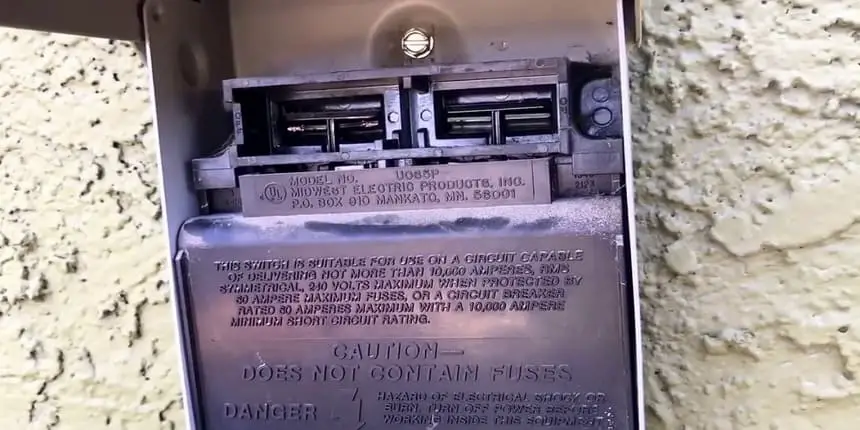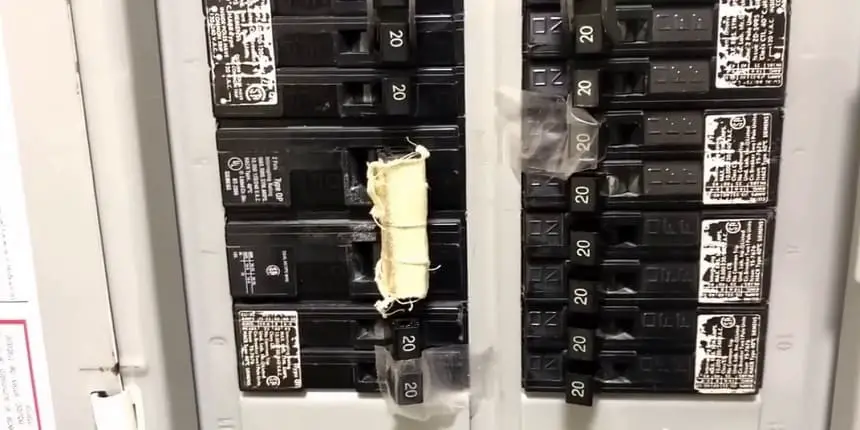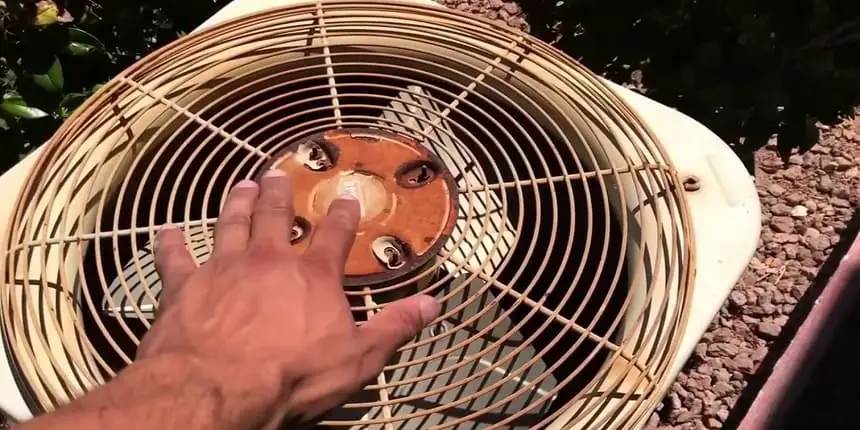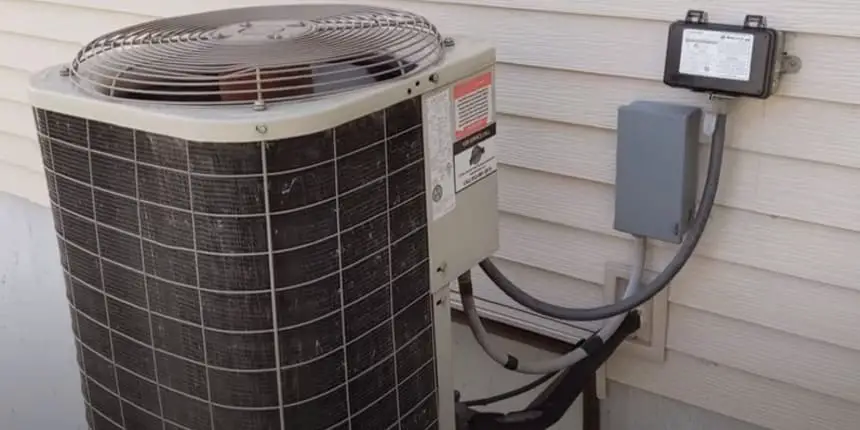Your RV AC keeps tripping the breaker due to an overloaded circuit or a faulty AC unit. Is your RV AC constantly tripping the breaker?
Dealing with a tripping breaker can be frustrating and inconvenient, especially during the hot summer months when you rely on your AC to keep you cool. There are a few reasons why your RV AC might be causing the breaker to trip.
One common cause is an overloaded circuit. If you have multiple appliances running on the same circuit as your AC, it can easily overload and trip the breaker.
Another possibility is a faulty AC unit, which can also cause the breaker to trip.
We will explore the potential causes and solutions to help you troubleshoot the issue and keep your RV cool and comfortable.
Page Contents
- 1 Why Does My RV Ac Keep Tripping the Breaker – Causes And Solutions
- 2 #1: Poor Wiring And Electrical Connections On RV AC Breaker
- 3 #2: Inadequate Power Supply For RV Ac – RV Circuit Breaker Keeps Tripping
- 4 #3: Overloaded RV AC System – How To Tell If RV Breaker Is Bad
- 5 #4: Malfunctioning Rv Ac Components – AC Trips Breaker On Hot Days
- 6 Maintenance And Cleaning Tips For Rv Circuit Breaker Keeps Tripping
- 7 Seeking Professional Help And Advice – How To Tell If RV Breaker Is Bad
- 8 FAQs For Why Does My Rv Ac Keep Tripping The Breaker
- 9 Final Words
Why Does My RV Ac Keep Tripping the Breaker – Causes And Solutions
- Possible causes for RV AC tripping the breaker:
- Electrical overload
- Circuit breaker malfunction
- Short circuit
- Low voltage
- Overheating
- Steps to troubleshoot and fix the issue:
- Check for electrical overload by disconnecting other appliances
- Inspect the circuit breaker for damage or loose connections
- Investigate for any signs of a short circuit
- Ensure proper voltage supply to the RV
- Clean and maintain the AC unit to prevent overheating
- Consult a professional if issues persist
By understanding and addressing the potential causes for RV AC tripping the breaker, you can effectively troubleshoot and resolve the issue, ensuring a comfortable and uninterrupted travel experience.
#1: Poor Wiring And Electrical Connections On RV AC Breaker
Signs of poor wiring and electrical connections can include constant tripping of the breaker, flickering lights, and voltage fluctuations.

To ensure proper electrical installation, it is important to hire a professional electrician who is familiar with RV electrical systems. They will ensure that the wiring and connections are done correctly, preventing any potential issues!
Besides that, regularly inspecting and maintaining your RV’s electrical system can help identify any wiring problems before they escalate.
Some tips for ensuring proper electrical installation in your RV AC system include using the appropriate wire gauge, securing all connections tightly, and avoiding overloading the circuit. It is also important to follow the manufacturer’s instructions for installation and maintenance.
With proper wiring and electrical connections, you can enjoy a reliable and safe RV AC system that operates smoothly without tripping the breaker.
#2: Inadequate Power Supply For RV Ac – RV Circuit Breaker Keeps Tripping
If your RV AC keeps tripping the breaker, it could be due to an inadequate power supply. Insufficient electricity can cause the AC unit to overload the circuit, leading to frequent tripping.
The Power Requirements Of RV AC Units – 30 AMP RV Circuit Breaker

RV AC units are designed to provide comfort during your travels, but recurring breaker trips can be frustrating.
One common cause of this issue is an inadequate power supply. RV AC units require a steady and sufficient power source to function optimally.
Signs of an inadequate power supply for your RV AC include frequent breaker trips, reduced cooling efficiency, and fluctuating power levels.
These can be indications that your AC unit is not receiving enough power to operate correctly.
To resolve power supply issues, there are a few solutions you can consider:
- Check your RV’s power source: Ensure that you are connected to a reliable and properly grounded power outlet. Inadequate or faulty electrical connections can lead to power supply problems.
- Upgrade your electrical system: If your RV’s electrical system is outdated or unable to handle the power demands of your AC unit, consider upgrading to a higher-capacity system. This may involve installing a larger generator, upgrading the wiring, or adding additional batteries.
- Reduce your power consumption: Try to minimize your power usage when running the AC unit. This includes turning off unnecessary appliances and using energy-efficient lighting.
#3: Overloaded RV AC System – How To Tell If RV Breaker Is Bad

RV air conditioning units are designed to provide comfort during camping trips. An overloaded AC system can lead to tripped breakers and reduced cooling efficiency.
An AC unit’s capacity is measured in British Thermal Units (BTUs). It represents the amount of heat the unit can remove from the air in an hour.
Exceeding the AC unit’s capacity can lead to an overload, causing the breaker to trip.
Signs of an overloaded RV AC system include frequent breaker trips, reduced airflow, and decreased cooling performance. If you notice these signs, it’s essential to take immediate action to prevent further damage.
To prevent overload and improve system performance, consider the following steps:
>> Check the AC unit’s manual for the recommended circuit breaker size and make sure it matches the one installed.
>> Clean or replace air filters regularly to maintain proper airflow.
>> Limit the use of other high-power appliances while running the AC.
>> Consider upgrading to a more powerful AC unit if your current one is consistently overloaded.
#4: Malfunctioning Rv Ac Components – AC Trips Breaker On Hot Days
Several common AC components in an RV can cause the breaker to trip, indicating a malfunction.
One of these components is the compressor, which may be overheating or drawing too much power.
Another culprit could be the condenser fan motor, which may be on its last leg and causing excessive strain on the system.
The capacitor is another important component that can fail, leading to a breaker trip. If any of these components are malfunctioning, there are some signs you can look out for.
These include a constantly tripping breaker, reduced airflow from the vents, strange noises coming from the AC unit, or a lack of cool air.

To identify and replace faulty components, you will need to consult your RV’s manual and follow the recommended steps. It is crucial to address these issues promptly to prevent further damage to your RV’s AC system.
Maintenance And Cleaning Tips For Rv Circuit Breaker Keeps Tripping
Regular maintenance is crucial for the optimal performance of your RV AC unit. It not only ensures cooling efficiency but also prevents frequent breaker trips.
Cleaning and maintaining the AC filters is an essential part of the maintenance routine.
Dirty filters restrict airflow, forcing the AC unit to work harder and potentially trip the breaker.
Cleaning the filters regularly and replacing them as needed can prevent this issue.
Inspecting the condenser and evaporator coils for dirt and debris and cleaning them regularly can improve the efficiency and prevent overworking the system.
Checking the electrical connections and tightening any loose wires can also help prevent breaker trips.
Seeking Professional Help And Advice – How To Tell If RV Breaker Is Bad
A reliable RV AC technician or service provider can diagnose and fix the problem effectively.
They have the knowledge and experience to identify the root cause of the breaker tripping. Additionally, they can provide expert advice on how to prevent future occurrences.
When hiring a professional for AC repairs, it is important to ask the right questions. Inquire about their certifications and qualifications.
Ask about their experience working with RV AC systems specifically. It is also a good idea to request references from previous clients to ensure their reputation and quality of work.
| Reasons to Seek Professional Assistance: | Questions to Ask When Hiring a Professional: |
|---|---|
|
|
FAQs For Why Does My Rv Ac Keep Tripping The Breaker
What Would Cause An Ac Breaker To Keep Tripping?
An AC breaker may keep tripping due to various reasons such as a short circuit, overloaded circuit, faulty wiring, or a malfunctioning appliance. It is important to troubleshoot and resolve the underlying issue to prevent further tripping and ensure the safe operation of the electrical system.
Why Does My Rv Ac Keep Tripping The Breaker?
The RV AC may trip the breaker due to several reasons:
1. Overloaded circuit: The AC may be running on a circuit with other high-powered devices.
2. Dirty air filters: Clogged filters can cause the AC to work harder and draw more power, triggering the breaker.
3. Faulty components: A faulty compressor, fan motor, or capacitor can lead to excessive power draw and breaker tripping.
4. Inadequate wiring: Insufficient or outdated wiring may not handle the AC’s power demands, resulting in breaker trips.
5. Low voltage: Fluctuations in power supply can cause the AC to trip the breaker as it struggles to operate efficiently.
How Can I Prevent My Rv Ac From Tripping The Breaker?
To prevent breaker trips with your RV AC:
1. Use dedicated circuits: Ensure the AC runs on its own circuit without any other heavy electronic appliances.
2. Clean air filters: Regularly clean or replace the AC’s air filters to maintain optimal airflow and prevent high power draw.
3. Check electrical connections: Inspect and maintain tight connections to prevent overheating and potential breaker trips.
4. Upgrade wiring: If your RV’s wiring is outdated or insufficient, consider upgrading it to handle the AC’s power needs.
5. Install a voltage stabilizer: A voltage stabilizer can protect your AC from power fluctuations and prevent breaker trips.
Can A Low Refrigerant Level Cause My Rv Ac To Trip The Breaker?
Yes, a low refrigerant level can cause your RV AC to trip the breaker. When the refrigerant level is low, the AC has to work harder to cool the air, leading to increased power consumption and potential breaker trips. Regular maintenance and monitoring of refrigerant levels can help prevent this issue.
Final Words
To prevent your RV AC from constantly tripping the breaker, it’s essential to identify the root causes like an Overloaded circuit, dirty air filters, faulty components, inadequate wiring, and take appropriate measures.
Regular maintenance, proper insulation, and avoiding overloading the electrical system are crucial. Additionally, consulting a professional electrician and investing in a surge protector can provide long-term solutions.
